Noah is portrayed as a gentle man, a kind, compassionate individual in a darkening world. He's given terrible orders from above. He obeys them because he sees no other choice. It hardens him, pushes him to the brink of insanity.
A man who wouldn't harm a single living thing is charged with assisting in the destruction of all. His very complicity creates psychopathy. He doesn't merely build a sanctuary and sail it, he fights off all he deems unworthy to survive.
Those doomed to obliteration do not go quietly to their Fate. They fight with everything they have to find physical salvation. Noah condemns them all, with unflinching righteousness, to the abyss. Extinction on a scale so massive, that it can barely be comprehended.
Of course, it's easy to see Noah as a religious fanatic, so lost in his own interpretation of divine revelation that all other considerations pale into insignificance. But there's another telling here too.
It's the story of everyone who ever blindly followed directives from their superiors. A fact that is underscored when Noah sees humanity reduced to silhouetted figures of soldiers flashing through the ages. Brother against brother finds expression in Cain and Abel, but that is merely a metaphor for all war. Nation against nation. Religion against religion. Race, ideology, all that ever caused one human being to feel that another had to die for their perceived difference.
In Noah's marionette display, those soldiers weren't merely contemporary. They wore the uniforms of warriors throughout the ages. They exist right now.
And it's that two-dimensional vision which presented humanity at its darkest edge. It was the petty violence that pushed Noah into supporting an act of absolute violence - the annihilation of all.


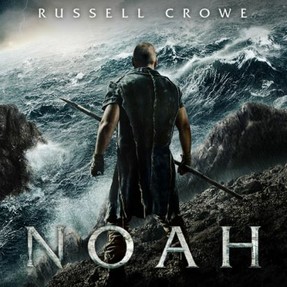 If it wasn't for the fact that Noah turns up in the Bible, Torah and Koran, we would be positioning this film alongside epic global disaster movies like The Day After Tomorrow or 2012.
If it wasn't for the fact that Noah turns up in the Bible, Torah and Koran, we would be positioning this film alongside epic global disaster movies like The Day After Tomorrow or 2012.
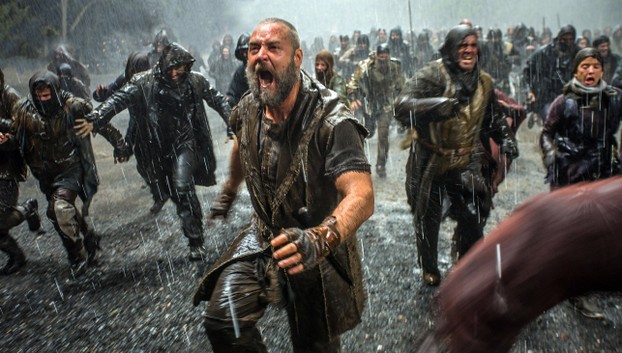

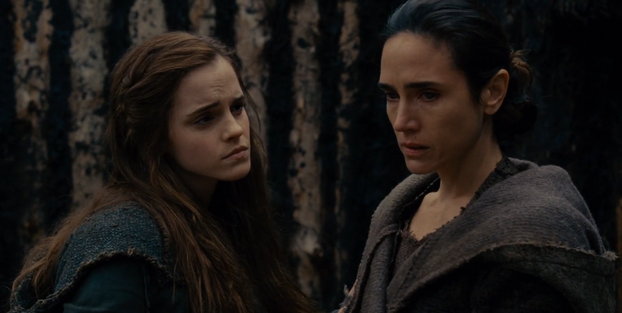






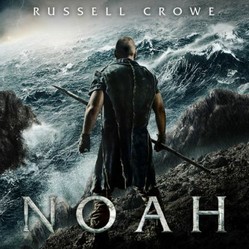

 St Tydecho's Churches in West Waleson 09/03/2014
St Tydecho's Churches in West Waleson 09/03/2014
 Goodies for an Outlander Premiere Partyon 03/06/2015
Goodies for an Outlander Premiere Partyon 03/06/2015
 Holocaust Memorial Day Interview with Rainer Höss, Grandson of Rudolf Architect of Auschwitzon 01/24/2015
Holocaust Memorial Day Interview with Rainer Höss, Grandson of Rudolf Architect of Auschwitzon 01/24/2015
 Romantic Valentine Gifts for an Outlander Fanon 01/16/2015
Romantic Valentine Gifts for an Outlander Fanon 01/16/2015


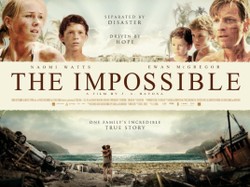
Comments
The book sounds interesting. I'll have to look it up.
And thank you again for the informative explanation of the Bible's origin. You've corrected some of my misconceptions.
The Hebrew and Greek text is unchanged, but ever since there were translations there were disputes over words. Strictly speaking a Bible should be for everyone, and popular translations aimed at a specific readership are suspect, as some of the subtlety of language is lost. Readability without loss of the power and nuance of language is a major problem for Scripture translators, and if we Christians think we have a problem translating the Bible, translating the Quran into a readable text while keeping the power of its language has been well nigh impossible, which is why most Muslims like to keep it in Arabic.
The content of Genesis became fixed about 450 BC, when the present text finally came together. However, the Septuagint translation into Greek was from the first century BC and that tended to fix the Greek wording of the Old Testament. The Latin Vulgate was from the fourth century and that fixed Latin wording of the whole Christian Bible. The Jews, though, do not accept the Vulgate, as it is specifically Christian.
I have just finished reading The Origins of the World's Mythologies by Witzel. As a scholar of history and paganism, this is a book that you could fruitfully read. It says little about Cain and Abel, but sees the tale in the light of certain myths about brothers. The book is a thick tome, but it is well written and informative, certainly of benefit to a scholar
I hadn't linked Cain and Abel with Romulus and Remus before. That's certainly a lot of food for thought. Thanks!
So when did the current content of Genesis become fixed? When I was talking about updates, I was thinking more of the modern day, when different Bibles have different wording, each catering for different congregations or modernising the language. I hadn't contemplated the ancient text. I'm glad you did though!
The first eleven chapters of Genesis contain a selection of ancient tales drawn together and given a single religious theme. One influence might be the myth of Dilmun, the happy land in the past. Cain and Abel is an ancient mythical theme dealing with the conflict between brothers [Romulus and Remus] but it is mixed with the conflict between farmers and pastoral nomads, whose side the Hebrews took for obvious reasons. There is the strange and mysterious tale of the sons of God and the daughters of men and the ill-consequences of their unions. Then comes Noah.A few mysterious figures enter the text, Enoch, who was so holy that he was taken up to live with God, and Lamech, Noah's father, who seems a brutal thug. We move on to a tale about the origins of wine.
After all this in Genesis 12 comes the Abraham story, which seems to me to be folk history composed of legends about a famous forefather, but many tribes claimed descent from Abraham, so he seems to have been a towering figure.
What is interesting about the composition of Genesis is that the editors showed respect for sources, so they would include slightly different versions of the same tale so as not to leave out any of the four sources that they were incorporating into the Pentateuch, so editing after the main combination of sources has been minimal. We find the same process happening in other books, and this goes as far as the New Testament, where John's Gospel and Revelations show signs of editing by addition of extra material. There is no evidence of subtraction.
I love when snippets of older stories survive the updates.
The desperate fighting is hinted at in the Bible, for it says in Genesis 6:1 that human wickedness was great on Earth, and yet again in 6:10 that the Earth was corrupt and full of lawlessness, and that corrupt were the ways of all living on Earth. There is no mention of Noah being nearly mad.
I do love it when you come in with all of the relevant information. *happy dances* Thanks for this.
The flood myth is one of the most ancient of all myths. It belongs to the very earliest mythological stratum, according to the book, The Origins of the World's Mythologies, a weighty tome which I have just finished reading,which is why I have not been writing much recently. All mythologies have a flood tale . The myth has become fused with various historical flood tales, such as the endemic flooding in Mesopotamia, whence the Noah tale originates.
The Bible has had many translations, but the content is unchanged. There are two flood tales in the Book of Genesis, both of which tell of Noah. The earlier [Yahwist] account was from about 900 BC, and this has animals going in two by two. The later [Priestly] account, about 450 BC, has unclean animals in twos and clean ones in sevens. This tale seems to show more connection with Babylonian myth than the earlier tale does, so it is likely that the earlier tale stems from oral tradition in the Middle East. There were other flood traditions in Israel, which add to the Noah tale, but they tend to come in later, specifically Jewish Scripture, rather than the Scriptures that Jews and Christians share.
Bear in mind that Genesis is a combination of myth and folk history/legend. The first eleven chapters are myth, but when we reach chapter 12, Abraham, we get into folk tales about a historical personage, but these are all that we know of him.
It really does depend upon which Bible, as there have been so many versions over the centuries. Plus Noah turns up in wider religious texts than the Christian ones. The movie draws upon ALL of the traditions, therefore it might not be what you heard in church.
I thought it was an outstanding retelling of the story. You have a great day too!
Thank you for your review, it was interesting to read how you viewed the movie. I have yet to see it, many tell me it doesn't line up with the historical Noah in the Bible, I don't remember him becoming mad in the process of obeying God, but wow, the world sure was a dark place at that time. BUT, can't fairly say much until I see it myself:-) Have a great day!